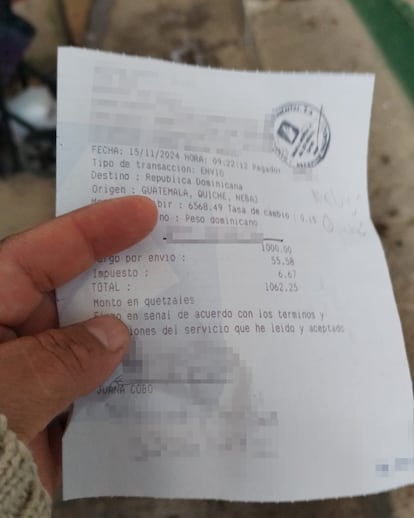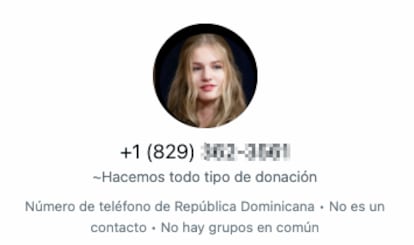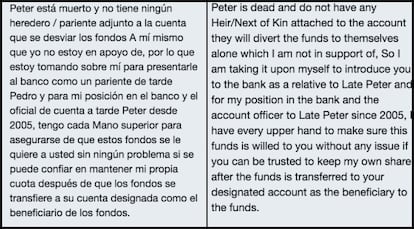Scammers impersonate Spain’s Princess Leonor on TikTok to deceive victims worldwide
Dozens of accounts are impersonating the royal to take advantage of vulnerable individuals. Over the past few weeks, EL PAÍS has tracked these swindlers and interviewed victims to understand their modus operandi

Princess Leonor of Spain does not have an official TikTok account, yet dozens of accounts impersonating her have emerged, targeting victims globally — especially in Latin America. These fraudulent profiles, some created using advanced artificial intelligence tools and boasting hundreds of thousands of followers, falsely present themselves as the princess offering financial aid.
The scam promises significant monetary assistance to anyone who requests it. However, to receive this supposed aid, victims are asked to pay a “small fee,” often amounting to a few hundred dollars. Once the initial payment is made, the scammer demands additional fees, pressuring the victim until they are drained of money. Eventually, the perpetrator disappears without providing the promised funds.

“Not only did I lose the money, but I got into a huge debt. I got my hopes up because they made me get my hopes up, and all I got was in debt,” Juana Cobo, 39, says by phone from Nebaj in Guatemala. “They sent me a message on TikTok telling me that the person speaking to me was Princess Leonor, that I had won $100,000, but that I had to pay a tax of 2,200 quetzales [about $250] to release the money,” she explains. “I thought it was true.”

When Cobo made the first payment, the fake “Leonor” demanded more money — 1,000 quetzales (about $130) to cover the supposed “lawyer fees” of the princess. Shortly after, she was told there had been a misunderstanding with that payment and was asked for an additional 1,500 quetzales ($195). The demands continued, with new excuses for further payments. By the time Cobo realized it was a scam, she had already paid a total of 5,800 quetzales (approximately $735).
“When I told them they were scammers, they disappeared. They blocked me, and I never heard from them again,” she recalls. Despite the financial loss, Cobo has chosen not to file a complaint. “It won’t do any good. If they’re in another country, what’s the point?” she laments.
This scam is an updated version of the infamous Nigerian letter or inheritance scam, only amplified by TikTok’s powerful algorithm. Many of these fake Princess Leonor accounts invite users to leave comments explaining why they need financial help or to provide their contact details. Some accounts are more aggressive and obvious, directly requesting bank account numbers to “deposit the aid.”
TikTok’s algorithm rewards and prioritizes posts with high engagement, meaning these the videos by these fake profiles — many with thousands of comments — achieve massive reach, with some exceeding a million views.
Over the past few weeks, EL PAÍS tracked and followed with numerous fake Leonor profiles to understand their operation. After a potential victim leaves a comment, the scammers initiate contact through private messages, and request a phone number. Some profiles even include a link in their TikTok bio directing users to a WhatsApp account. Once contact is made, the scam progresses through phone calls. If the scammer is male, he typically poses as Princess Leonor’s lawyer; if female, she impersonates the princess herself.

During these calls, the scammers promise to deposit a large sum of money — sometimes more than $100,000. However, they claim the recipient must first make a payment to cover a “deposit to sign the check” or “taxes.” These payments typically range from $100 to $200 and must be sent to various Western Union accounts. All the phone numbers traced by EL PAÍS and the accounts where victims are instructed to send money are based in the Dominican Republic.
The scammers push for payments to be made as quickly as possible to prevent victims from realizing they are being conned. If there are delays, the scammers become insistent and aggressive. In one WhatsApp audio recording obtained by EL PAÍS, a scammer — pretending to be Princess Leonor’s lawyer — pressures a potential victim, threatening to give “the check” to someone else if the payment is not made promptly.

In a slightly more elaborate variation of the scam, the perpetrators disguise their scheme as a simple and bizarre contest. A fake Princess Leonor — created using AI tools to mimic her movement and speech — challenges users to stop a moving image at a specific position to qualify for financial assistance. One TikTok account promoting this version of the scam has gained significant traction, amassing over 410,000 followers.

EL PAÍS reached out to TikTok Spain to report the scam. Following a review, TikTok removed several profiles for violating community guidelines. However, many remain active, with some accounts operating since as early as July.
EL PAÍS also notified the Spanish Royal Family, which declined to comment on the matter. The Royal Family does not maintain any official presence on TikTok — a gap that scammers exploit by adding a blue “check” to their profile pictures, falsely presenting themselves as verified accounts.

The target of the scams: Elderly and vulnerable people
The Online Fraud Investigation Group of Spain’s National Police Cybercrime Unit has confirmed to EL PAÍS that no cases of the fake Princess Leonor scam have been reported in Spain so far. However, an analysis of dozens of these fraudulent profiles suggests that the scammers primarily target elderly individuals — many claiming to offer assistance exclusively to those over 60 years old — particularly in Latin America and those in vulnerable circumstances.
Such was the case for Juana Cobo, a Guatemalan woman caring for two children. “I have nothing. I am an orphan and don’t even have my own house,” she says. “I wanted the money to get ahead.”
Cobo says he didn’t even have the amount the scammers demanded. “I had to borrow from a relative,” she says. “Now I don’t know how I’m going to be able to pay them back.” The total amount she paid is nearly double Guatemala’s minimum wage.
A scam with a 200-year history
The fake Princess Leonor scam is only the latest iteration of a con that dates back more than two centuries. Historian Martín Turrado, an expert on the history of the Spanish police, details in his book Estudios sobre Historia de la Policía y Gentes de Malvivir (Studies on the History of the Police and Rogues), how a similar trick emerged in the early 19th century. Known as “the hidden treasure” scam, it convinced victims to believe in a buried fortune. The victims were persuaded to finance its recovery in exchange for a share of the loot.
According to Turrado, the scam gained traction during the War of Independence (1808–1814) when rumors circulated that many people buried valuables to prevent them from falling into Napoleon’s hands. “With this background,” Turrado writes, “swindlers crafted a credible enough story to convince victims to part with their money, which is ultimately what this business is all about.”
In the 20th century, the scam evolved into what became popularly known as “Nigerian letters” or the “Nigerian prince” scheme. These scams often came in letters from supposed Nigerian royalty seeking financial assistance to unlock an inheritance. By the early 2000s, scammers had adopted email as their primary tool; Snopes, a website specializing in debunking hoaxes, recorded examples of this scheme as early as 2003. One such email claimed to represent Swiss bank HSBC. Over the last decade, the scam transitioned to social media platforms like Facebook and Twitter, where private messages became the favored medium.

Currently, “online fraud is generating a lot of money and this gives scammers a lot of resources,” explains the Online Fraud Investigation Group. This enables scammers to “buy” credibility by purchasing accounts that already have thousands of followers, making it easier for them to appear authentic. They can also buy followers, bots, or small fake accounts to post positive comments. Although none of these fake Princess Leonor profiles are real, many are filled with messages from supposed “winners” thanking the princess for receiving a “great prize.” These messages help deceive potential victims into believing the scam is legitimate.

How to avoid falling for this type of scam
EL PAÍS has asked the Online Fraud Investigation Group of the National Police Cybercrime Unit for guidelines and advice on how to avoid falling for this type of scam. This is what they recommend:
- Be wary of profiles that are not official.
- Be wary of any social media account that offers money in an apparently altruistic way.
- Do not click on any suspicious links coming from suspicious profiles, and do not provide them with any personal information.
- If you cannot verify whether it is an impersonation, consult with someone you trust who can provide a critical view.
Sign up for our weekly newsletter to get more English-language news coverage from EL PAÍS USA Edition
Tu suscripción se está usando en otro dispositivo
¿Quieres añadir otro usuario a tu suscripción?
Si continúas leyendo en este dispositivo, no se podrá leer en el otro.
FlechaTu suscripción se está usando en otro dispositivo y solo puedes acceder a EL PAÍS desde un dispositivo a la vez.
Si quieres compartir tu cuenta, cambia tu suscripción a la modalidad Premium, así podrás añadir otro usuario. Cada uno accederá con su propia cuenta de email, lo que os permitirá personalizar vuestra experiencia en EL PAÍS.
¿Tienes una suscripción de empresa? Accede aquí para contratar más cuentas.
En el caso de no saber quién está usando tu cuenta, te recomendamos cambiar tu contraseña aquí.
Si decides continuar compartiendo tu cuenta, este mensaje se mostrará en tu dispositivo y en el de la otra persona que está usando tu cuenta de forma indefinida, afectando a tu experiencia de lectura. Puedes consultar aquí los términos y condiciones de la suscripción digital.









































